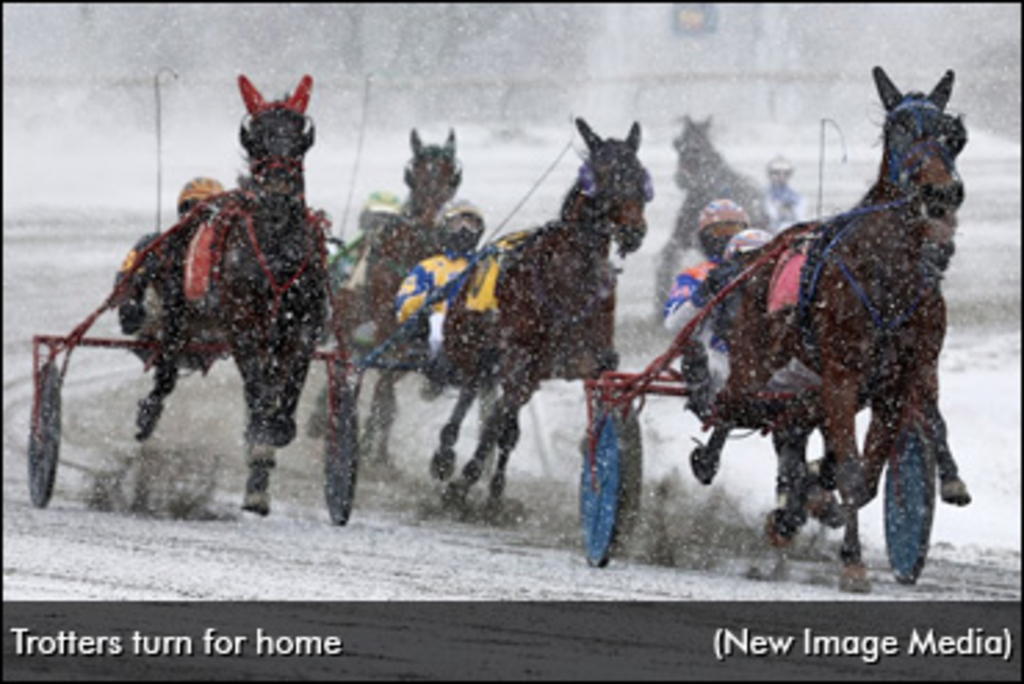
The Alcohol and Gaming Commission of Ontario (AGCO) has been informed that three additional horses tested positive for Strangles this week in the affected barn at Shamrock Training Centre. Restrictions remain in effect.
In addition, two other Standardbreds unloaded in Ontario were identified as being shipped with the horse that originally tested positive at Shamrock Training Centre. AGCO understands that these horses were isolated away from other horses immediately on arrival but as a measure of caution made these horses ineligible until they have confirmed negative tests.
The AGCO has noted that Standardbred horses at Red Shores Racetrack in PEI have tested positive for Strangles.
Strangles is a highly contagious and serious infection of horses and other equines caused by the bacterium, Streptococcus equi.
Additionally, on February 18, 2021 the Ontario Ministry of Agriculture, Food and Rural Affairs (OMAFRA) reported two confirmed cases of Equine Herpesvirus Myeloencephalopathy (EHM) caused by equine herpevirus-1 (EHV-1) in the Regional Municipalities of Peel and Niagara, ON. The AGCO reminds industry participants to use extreme caution when considering whether to bring new horses to a facility. It is recommended that horse people implement the highest level of biosecurity measures if they bring in horses from a facility with or associated with a recent or active infectious disease outbreak. EHV-1 and Strangles are highly contagious infectious diseases that may cause significant sickness and even death of horses and may cause prolonged economic hardship for participants and the industry. AGCO recommends that industry participants consult with their AGCO licensed veterinarian on these matters.
Horsepeople are reminded to remain vigilant and institute appropriate biosecurity measures and should consult their veterinarian for advice.
The AGCO will monitor these situations and any further developments will be reported. For more information, contact:
Horse People:
Dr. Pamela Chesterfield
Manager of Veterinary Services
(519) 551-1037
Dr. Adam Chambers
Senior Manager of Veterinary Services
(289) 237-3922
Additional Resources:
La CAJO rappelle aux professionnels du cheval l’importance des mesures strictes de biosécurité
La Commission des alcools et des jeux de l’Ontario (AGCO) a été informée que trois autres chevaux ont été testés positifs à la gourme cette semaine dans l’écurie affectée à Shamrock Training Centre. Les restrictions restent en vigueur.
En outre, deux autres chevaux standardbred déchargés en Ontario ont été identifiés comme étant expédiés avec le cheval qui avait été testé positif au centre d’entraînement Shamrock. La CAJO comprend que ces chevaux ont été isolés des autres chevaux dès leur arrivée mais, par mesure de prudence, a rendu ces chevaux inadmissibles jusqu’à ce qu’ils aient confirmé des tests négatifs.
La CAJO a constaté que les chevaux standardbred de l’hippodrome Red Shores de l’Île-du-Prince-Édouard have ont été testés positifs pour la gourme.
La gourme est une infection très contagieuse et grave des chevaux et autres équidés, causée par la bactérie Streptococcus equi.
En outre, le 18 février 2021, le ministère de l'Agriculture, de l'Alimentation et des Affaires rurales de l'Ontario a signalé deux cas confirmés de myéloencéphalopathie à virus de l’herpès équin causée par l’herpèsvirus-1 équin (HVE-1) dans les municipalités régionales de Peel et Niagara, en Ontario. La CAJO rappelle aux participants de l’industrie de faire preuve d’une extrême prudence lorsqu’ils envisagent d’amener de nouveaux chevaux dans une installation. Il est recommandé aux éleveurs de chevaux de mettre en œuvre le plus haut niveau de mesures de biosécurité s’ils font venir des chevaux d’un établissement ayant été touché ou associé à une épidémie récente ou active de maladie infectieuse. L’HVE-1 et la gourme sont des maladies infectieuses très contagieuses qui peuvent provoquer des maladies importantes et même la mort de chevaux, et peuvent causer des difficultés économiques prolongées pour les participants et l’industrie. La CAJO recommande aux participants du secteur de consulter leur vétérinaire autorisé de la CAJO sur ces questions.
Il est rappelé aux éleveurs de chevaux de rester vigilants et de mettre en place des mesures de biosécurité appropriées. Ils doivent consulter leur vétérinaire pour des conseils.
La CAJO surveillera ces situations et toute évolution ultérieure sera signalée. Pour plus d’information:
Professionnels du cheval :
Dr Pamela Chesterfield
Responsable des services vétérinaires
519-551-1037
Dr Adam Chambers
Chef des services vétérinaires
289-237-3922
RESSOURCES SUPPLÉMENTAIRES
(AGCO)


This has been an ongoing
This has been an ongoing problem in PEI. Perhaps the Atlantic bubble should keep the horses in as much as it does to keep people out until they can properly address this matter.